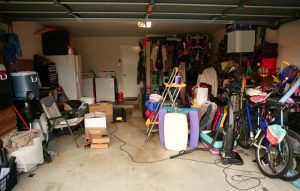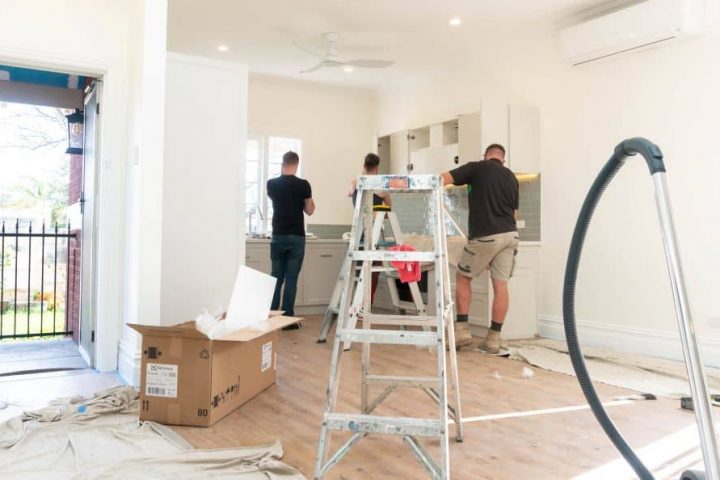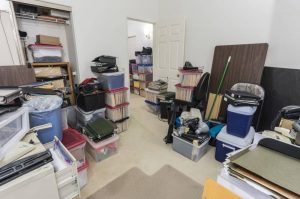If we are honest, many of us have some type of clutter. It may not be to the level of extreme seen on the television show Hoarders, but clutter is a relatable problem.
Clutter is a problem that can sneak up on you. Today you have a messy desk; the next, your dining room table and buffet are covered and left unchecked; one day, you are clearing a path to get from your kitchen to the front door.
While a stack of books and several family photos likely will not compromise your well-being, there is a growing body of research that shows clutter affects your mental and physical health.
How Can Clutter Effect My Mental Health?
There are many ways that clutter can impact your mental health. You may have already experienced the stress and aggravation of frantically searching through the clutter for your keys or phone. That feeling is just one of several ways clutter can negatively affect your mental well-being.
Some of the ways clutter harms your mental health are direct and others indirect. However, both types of impact can disrupt your peace of mind, relationships, productivity, and quality of life.
- Clutter drains your mental energy – Even if you are not actively pondering your messes, your mind is busy trying to sort through your chaotic surroundings. This wasted energy could be better spent productively.
- Clutter has strong links to anxiety attacks – The feeling of being closed in by the clutter surrounding you can bring new or worsening anxiety attacks. Those with anxiety tend to benefit from order and structure. The chaos of clutter makes anxiety increase.
- Clutter and depression make a vicious cycle – In some cases, it is not always clear whether mess came before depression or the other way around. However, the interaction of the two can be brutal. In a situation where a depressed person faces mounting clutter because depression saps their will to tidy, the clutter will continue to build. As the clutter increases, the depression deepens. More profound depression leads to greater difficulty cleaning, which increases the clutter. And so on in a seemingly endless cycle of mess and misery.
- Clutter can erode your self-esteem – Deep down, the messiest people know that living in a cluttered mess is not good for them. However, rather than inspiring the desire to clean, the guilt of having a chaotic mess leads some people to negative thoughts about themselves.
- The presence of clutter is distracting – The visual sense of disorder will cloud your ability to focus on your work, hobbies, and people around you.

How is Clutter Impacting My Physical Health?
According to internationally acclaimed simplicity expert, Bronwen Sciortino the clutter around you is more damaging than you think. When you are surrounded by clutter, it can take its toll physically in the following ways,
- Allergies and asthma become more prominent because clutter collects animal fur, dust, dander, and mould.
- Clutter is linked to overeating – A study found that women who were cooking in a messy kitchen consumed twice as many calories as women cooking in tidy kitchens.
- Your body produces an overabundance of the hormone cortisol. Numerous medical studies name cortisol as a significant contributing factor in several chronic health problems including,
– Type two diabetes
– Various autoimmune disorders
– Stroke
– Cardiovascular disease
– Excessive fatigue
– Insomnia
- Physical peril is another impact of clutter
– Falls are likely in a cluttered environment
– Extensive collections of paper and other flammable objects create a fire hazard with potentially deadly consequences
– Food garbage attracts insects and vermin, which can carry many diseases
If I Have a Lot of Clutter, Am I a Hoarder?
Even though the term clutter is sometimes used when describing a hoarder’s home, the two terms are not the same.
Clutter is generally characterized as an overabundance of disorganized objects. The mess is unpleasant and can impact the mental and physical wellness of those it surrounds.
Hoarding is characterized as an excessive accumulation of objects and garbage. The mass of useless items is impossible to manage and typically stored chaotically. Hoarding is a severe disorder that requires mental health intervention.

Big Benefits of Removing Clutter
Removing clutter from your home or office space can bring some powerful positives into your life:
- A sense of control over yourself and your surroundings
- Enhanced ability to process information
- Greater focus and improved memory
- Feelings of joy and hopefulness
- Less draining stress
- More energy and a sense of freedom
How Can I Decrease the Clutter in My Life?
The old saying “admitting there is a problem is the first step to finding a solution.” certainly, applies when dealing with clutter. There are several ways you can address the issue of clutter in your life.
Advice From the Ancient World – Believe it or not, the ancient Greek philosopher Socrates believed in decluttering. Although he focused on the mind, his ideas can carry over into emptying that spare bedroom before your gran and pop visit at Christmas.
Socrates challenges us to examine what we hold onto, whether it is a set of personal beliefs or that stack of t-shirts from high school. Look at what you have and defend its presence in your life. If it is indefensible, it needs to go. Although his method was severe, Socrates consistently shared the idea with his contemporaries. Unfortunately, Socrates spent so much time encouraging the ancient Greeks to declutter that they executed him.
A Modern Take on Decluttering – The KonMari Method of clearing away clutter boils down to objects’ sparking joy’ in your life. (According to this idea, many would spend time tossing out dirty dishes, utility bills, and that itchy sweater mum made.) This way of decluttering has helped many people, yet just as many believe it is too rigid. So, examine your belongings and toss out what does not give you joy.
Middle Ground – You can take a few cues from both methods of decluttering. It is likely that you already know that some things need to go. For a less overwhelming experience,
- Divide your cluttered area into manageable sections
- Work one section at a time until it is complete. This will allow you to see progress and find some extra motivation to keep going
- Begin each section by throwing away things that are trash. The broken lamp you will never fix, the ripped throw pillow, that cat toy missing its head.
- Look at what is left after the actual junk is gone and narrow the field. Decide what you will use and find each item a place. You may want to donate some of your possessions that are useable. Some mementos you may choose to pack away.

What About the Things I That Want to Keep?
Understandably, you will want to keep some things for various reasons. However, to eliminate clutter, you need to find a place for all items you wish to keep. There are a few ways to do this, although the type of item usually dictates the storage method. Fortunately, there is a universal way to store your possessions.
One way to safely store the things you want but do not need in plain sight is to hire a mobile storage unit, also known as pods. These have the advantage of being secure, climate-controlled, and portable. You can find various sizes, and they will come to your door. So, if you have an empty corner of your yard, a mobile storage unit can be nearby and still out of your way.
What Things Can Go Into a Mobile Storage Unit?
Because quality portable storage units are climate controlled and sealed to prevent moisture, many items can safely be kept in a pod.
The list includes but is not limited to:
- Furnishings you may need in the future – Baby items are an example of this, especially if you plan to have more than one child. Additionally, the furniture you will send with your children when they move out of your home comes to mind.
- Seasonal decorations – You want to keep your Christmas décor and your Halloween pumpkins, but you would like them out of sight for most of the year. A mobile storage unite is an ideal place to keep them.
- Outdoor furniture and décor – A pod will do the trick when seasons change, and you want to protect your outdoor furnishings.
- Mobile storage pods can be a massive help when you are decluttering your office space. You do not have to use pods just for home storage. Because they come in various sizes, you can choose one to keep important articles safe and tucked away.
Decluttering can be a tremendous job for some, but it is a pathway to improved mental and physical health at the end of the day. For more information regarding mobile storage units, be sure to speak with one of the storage solution experts at Spacebox.
